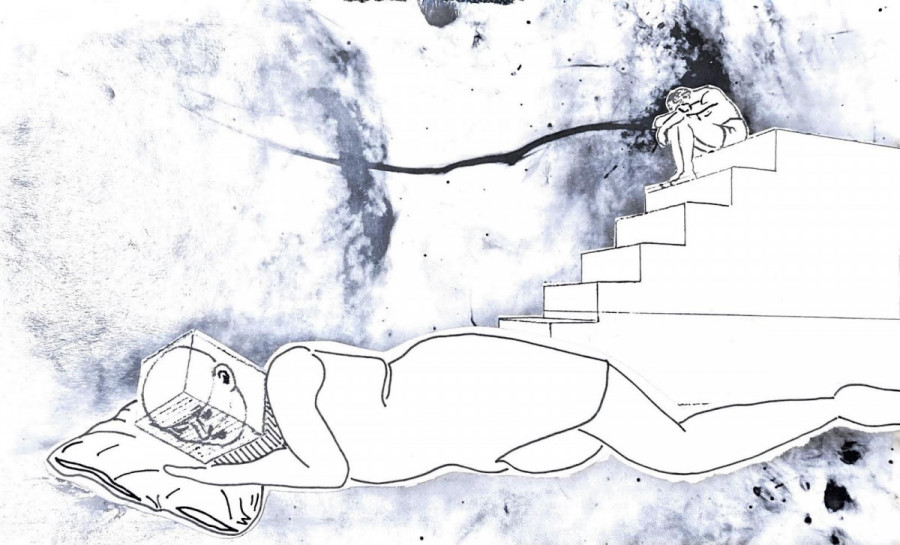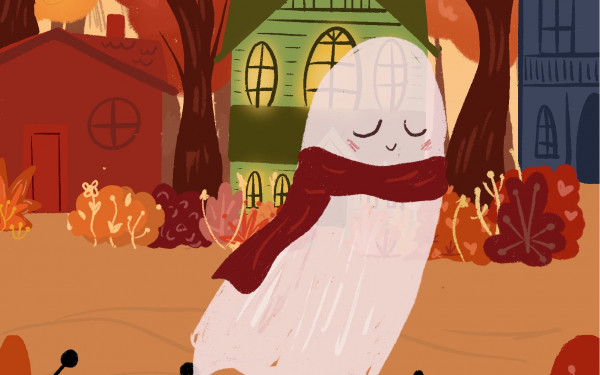Why I didn’t ask for help
My history with mental health stigma
The white picket fence house: the grass was always green and trimmed, the garden was full of colourful flowers, and there lived a perfect family of four. But then you walk inside, and you notice something is off. Looking out, the grass is less vibrant and unkept, the flowers are shrivelled up, and the perfect family is in four different sections of the house. The power of illusion, am I right? Anything can look okay on the outside but be dying on the inside.
Growing up in chaos, I learned to internalize big feelings to ‘keep the peace’ in my home. As a child, you can sense when tensions are high, you learn to pick up on body language and the change in tone; all the little details. Through this newfound skill I developed so young, I was quickly able to tell when my emotions weren’t a priority. I didn’t feel safe expressing myself. I became accustomed to tending to other people’s emotions, like my parents, and disregarded my own. This would lead to countless dark nights, filled with the sound of my silent cries, desperately wishing that someone would wipe away my tears. But, alas, there my head lay on my tear-soaked pillow.
This followed me into my early adulthood and translated into me feeling like my emotions held no value. I didn’t feel worthy of asking for help, let alone receiving it (depression and trauma will do that to you). The times I had the courage to ask for help and to be listened to, I was met with being told that what I felt was wrong or with nothing changing after the fact, which left me feeling confused and hopeless.
I was scared to be vulnerable with someone just for me to feel more alone in the end. It felt like my words didn’t matter. So, I stopped trying to be understood.
Masking how I felt became my expertise. “I try to act happy most of the time, but I’m actually not really,” wrote 13-year-old me in my purple bedazzled diary.
This deep-rooted sadness has been growing within me since childhood and has stayed with me throughout my life. I never thought it would go away, regardless of whether I talked about it or not. “So why talk about it?” I asked myself.
I was in survival mode; acknowledging how I felt and asking for help was not at the forefront of my mind. I woke up, sighed, brushed my teeth while dissociating, got ready with stomach pain, somehow got through the day, went to bed thinking about how I was going to escape for the next few hours, and then repeat.
I would get in depressive states that I didn’t realize were debilitating, until someone found me in the middle of one, unable to move on my bed. I remember my body feeling a thousand pounds heavier, my eyelids not having the strength to stay open, breathing felt like a task and I couldn’t speak more than one word. At this point, I knew I needed to get help. I couldn’t keep disregarding myself.
Now, at 20 years old, I can say that I have learned to allow myself to lean on the people I love for support. I healed through words. Reading, talking in therapy, journaling when my thoughts were screaming at me, and opening up to friends and family about my struggles have really shown me that we don’t have to go through everything alone.
Talking about how you feel is healthy, it allows for deeper connections with people and with yourself. To anyone struggling right now, you deserve to feel supported and loved. Talk about it.
This article originally appeared in Volume 44, Issue 5, published October 31, 2023.






